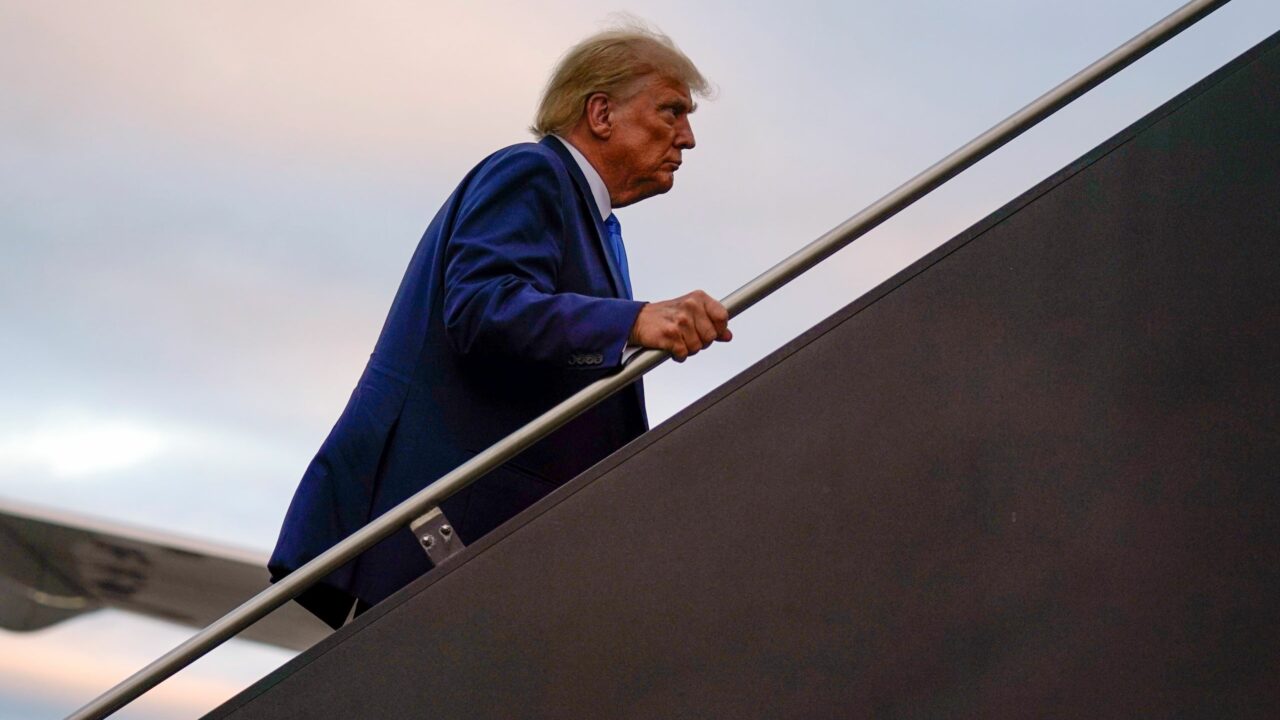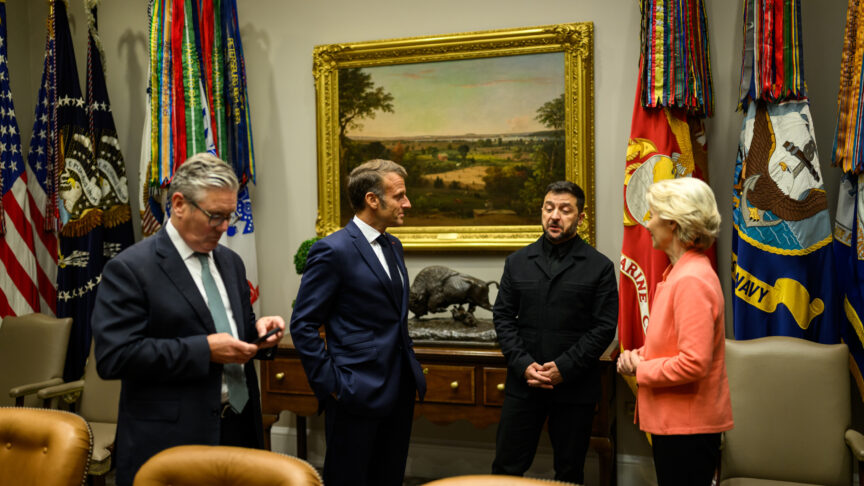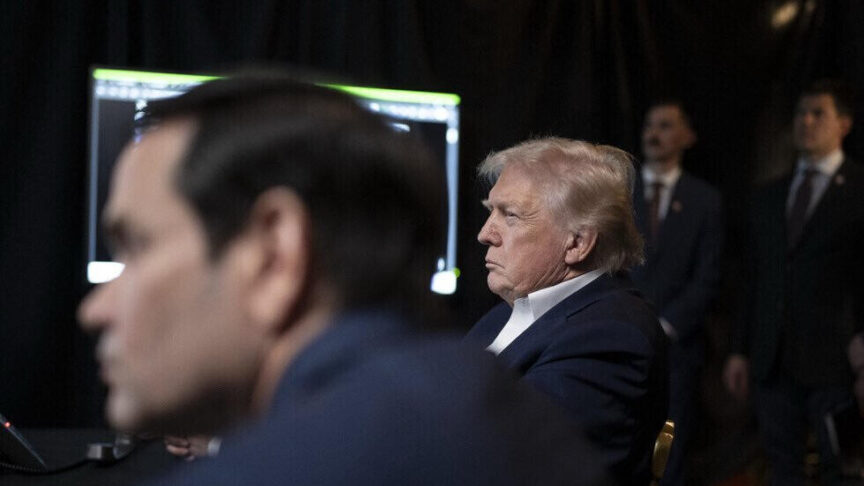The Trumpist Manifesto: The Republican struggle for a second-term foreign policy
The prospect of Donald Trump’s return to the US presidency has left three Republican tribes vying it out to fill in the details of his hazy foreign policy ambitions
An orange spectre is haunting Europe — the spectre of Donald Trump. All the powers of old Europe have entered into a holy alliance to exorcise this spectre. But exactly what the old powers of Europe fear is unclear. As the 2024 US presidential election nears, a second term of Trump’s foreign policy remains a spectre without substance, scary in concept; fuzzy in detail. Trump is a “big picture” thinker who during his presidency actively disdained detail, consistency, and even coherence in foreign policy.
A variety of Republican think tanks, including some “new right” upstarts recently formed by Trump administration alumni, are preparing playbooks to fill in the policy details of Trump’s broad brush strokes. These include the Heritage 2025 Agenda and the America First Foreign Policy Platform of the America First Policy Institute, which is staffed by former Trump officials.
The battle for Trump’s mind
These efforts all broadly conform to Trump’s vague philosophy, but they still disagree on some quite important details. Trump controls the Republican party – there is nothing any Republican intellectual can do about that. The question is who in the party can control Trump’s foreign policy.
Three main Republican foreign policy camps or “tribes” are waging this battle for Trump’s mind: the primacists, the prioritisers and the restrainers. The dominant segment in the Congressional caucus and among the Washington establishment remain traditional ‘primacists’. They support continued US leadership and military presence throughout the world. The ‘restrainers’, who call for a radical reduction in US security cooperation abroad, claim to have the support of the Republican base. The ‘prioritisers’, who want US foreign policy to focus tightly on Asia and China, are a minority at both the elite and popular levels. They have aligned mostly with the restrainer insurgency and hope to be able to carve out a China exception to the restrainer trend.
The restrainers are adamant that the United States has changed and will no longer support foreign wars or even security commitments abroad. They feel that the Washington establishment, including the traditional Republicans, are deeply out of touch on this issue and the restrainers clearly feel the political winds at their back. The Republican presidential primary campaign thus far implies they have a point. Restrainers point out that, in key swing states, there was a strong correlation between a community’s rate of military sacrifice and its support for Trump in the 2016 presidential election. In other words, victory in swing states like Pennsylvania, Michigan, and Wisconsin requires the support of sizeable veteran and military communities who are deeply sceptical of US military entanglements in Europe and Middle East.
That trend is in tension with the primacist foreign policy agenda, which rests on the belief in the United States’ capacity for leadership and the necessity of American power in multiple regions. Primacists don’t believe that restraint or prioritisation is a real geopolitical option. They feel that geopolitics will inevitably draw any president back into Europe and the Middle East, as recent events imply, and that a simple focus on China and Asia ignores the critical linkages between these theatres.
Fighting the deep state
All the tribes understand that, as the saying goes, “personnel is policy”. Trump’s lack of foreign policy coherence means that whoever implements his foreign policy may in fact determine it. Indeed, the Trumpian narrative holds that a deep state conspiracy, with agents embedded in the bureaucracies of the Justice Department, the Defense Department and even the White House sabotaged his first term agenda, both domestic and foreign.
Trump’s lack of foreign policy coherence means that whoever implements his foreign policy may in fact determine it
Documents such as the Heritage 2025 agenda are thus very focused on rooting out politically biased “deep state actors” from the government. In this effort, the restrainers and prioritisers, as insurgencies against the establishment primacists, have an inherent advantage. They generally portray the bureaucrats and even many first term political appointees as addicted to primacy and willing to undermine Trump’s agenda. Trump himself has repeatedly attacked primacist ideology, as well as some of the primacists he himself appointed, such as his former chief of staff John Kelly and UN ambassador Nikki Haley.
The Heritage 2025 agenda includes plans for a sweeping overhaul of the federal bureaucracy and “deconstruction of the administrative state”, with a view to replacing “policy adjacent” civil servants (perhaps up to 50,000 of them) “with pre-vetted appointees” that will reliably carry out Trump’s policies, whatever they turn out to be. These documents thus focus on identifying potential staff at all levels, training them to survive in the swamp of the federal bureaucracy, and finding mechanisms to ensure their loyalty.
Implications for Europeans
Beyond the focus on the deep state, the Trumpist manifestos reflect the sense that America has too many security commitments abroad and has been taken advantage of by its allies. Restrainers insist that the US must move from the concept of “burdensharing” (the expectation that NATO allies live up to their 2 per cent military spending commitments) to “burdenshifting” (minimising the US role in NATO to force Europeans to take responsibility for security in Europe).
Both restrainers and prioritisers oppose any further NATO enlargement. They feel that Europeans will never have the necessary incentives to take their own security in hand if America doesn’t quickly reduce its presence in Europe. And they accuse the Biden administration of having discouraged European strategic autonomy by adding 20,000 US troops to Europe since 2022 and increasing US air defence support.
The restrainer’s alternative agenda is to create a new, non-US-centred security architecture in Europe. This would mean pulling out most US troops from Europe and revising NATO rules to create a “dormant NATO”, which is to say a NATO led by Europeans in which Americans play only a supporting role.
The prioritisers usually highlight the need to shift resources from Europe to the Indo-Pacific. They view a conflict in the Taiwan Strait as highly likely, but they do not expect Europe to get directly involved directly in a Taiwan crisis, nor do they see much value in integrated deterrence in which Europe would play a role. Rather, they expect European participation in the US effort to technologically contain China and for European militaries to backfill US military assets in Europe if the US has to redeploy assets to the Indo-Pacific. Interestingly, they believe that the US defence industrial base has eroded to such an extent that it makes sense to push Europeans to build more European weapons rather than to continue to tell them to buy US weapons, which will remain in short supply.
The primacists are determined to maintain US leadership and its presence in Europe, but they emphasise that they would expect greater fealty on the issue of China, would not subordinate the China agenda to the climate agenda, and that in general their strategy, in contrast to the Biden administration, would be to lay out bold positions and see who follows rather than negotiating a lowest common denominator approach with allies.
In all cases, therefore, US foreign policy will change dramatically if the spectre of Trump takes corporeal form as the next president. From a European perspective, the restrainers and prioritisers would shake the very pillars of European security in the name of putting either America or China first. The primacists are a more traditional challenge for European policymakers, but they still represent a massive change from the Biden administration’s allied-friendly approach.
The European Council on Foreign Relations does not take collective positions. ECFR publications only represent the views of their individual authors.



